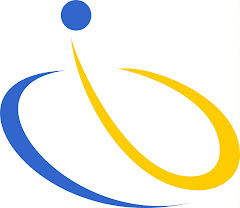Sunday, May 1, 2011
Mailed, paper invitations make a difference
Tuesday, April 19, 2011
Getting VIPs to the table
- Ask.
- Don't just ask VIPs just because they seem important to you; ask the ones who make sense for your event. Will they get real value out of attending? Do they have something unique to offer?
- Follow the domino theory of events -- make a list of the VIPs you want, then do whatever it takes to knock one down/get the yes. Once one says yes, the next one is much easier.
- Build a track record and use it when the time comes. If people know your events are successful/fun/beneficial to people like them, they will be much more likely to come.
- Make your list of prospects as long as possible. Like most things, it is a numbers game. Pretty much no matter how important the people on your list are, if the list is long enough, odds are decent you can get one of them to say yes to you (then the second… then the third…)
Sunday, April 10, 2011
My professional crusade -- events as marketing
1. Events put the people you want, where you want them, when you want them there.
2. Events provide up-close-and-personal interaction with customers and prospects.
3. The results of event marketing are measurable.
4. Done right, an event marketing program can take your investment and leverage the money of others to give you exponential value.
One of the issues that seems to hang people up is the sort of event they want to have. The problem is that they tend to start with this question in the wrong place. They start with themselves (what they do and sell) instead of with their target market (who their customers are and what benefits them).
Ask these questions:
1. Who is my target market? Get detailed about this -- think about age, demographics, interests, the various segments of your market. In the end, what you want to get to is groups of individuals who feel an affiliation with each other (athletes, moms, skate-board kids, active seniors, etc.).
2. What sort of events would benefit my target market (educationally, recreationally, in terms of entertainment, etc.)?
Asking those two questions should lead you to a long list of events that will provide incredible opportunities for you to connect and build relationships with your target markets.
A few examples from my clients:
Landscaping company doing a green business expo (have you read articles about how important it has become to people that their landscaping/lawn maintenance service providers support healthy living values?)
Pizza joint doing a social event for young moms (who is it that decides where the family eats?)
Pharmacy doing a health fair (yeah, this one is pretty obvious)
You get the picture.
"Events as marketing" is a powerful concept.
Go tell people.
Saturday, April 9, 2011
Accessibility, when choosing a location
Talk to the managers of all facilities about their accessibility and make sure that checking this out is an important part of your first site visit. With ADA regulations, most facilities you talk to should be able to call themselves accessible, but you really want to check this out. Are the bathrooms truly accessible? Are the accessible bathrooms close to where you are going to be on the property? What are the accessible sleeping rooms like? Are there enough to meet your needs? If there is a stage of some sort in the room, is it accessibly for wheel chairs . If you find you need services related to disabilities (sign language specialists, for example) can the facility help you identify them?
Sunday, April 3, 2011
Identifying sponsors for your event
Saturday, April 2, 2011
Event marketing secret -- get the kids and you get the parents

Your business doesn't really cater to kids?



